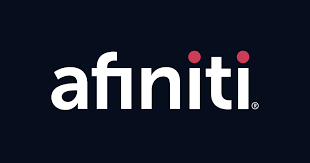Islamabad November 14 2021: In a watershed development and to press his vision into practice, Mr. Shaukat Tarin, Advisor to PM on Finance & Revenue has launched the formulation of Inland Revenue Code in a bid to harmonize all inland taxation laws and maximize facilitation of taxpayers.
It promises to ensure ease of doing business by removing multiplicity of taxing statutes and a plethora of rules & regulations devised to operationalize them. It is pertinent to mention that FBR, on domestic side, implements and enforces four major tax laws i.e. the Income Tax Ordinance, 2001, the Sales Tax Act, 1990, the Federal Excise, 2005, & the Islamabad Capital Territory (Sales Tax on Services) Ordinance, 2001. These four tax statutes are then supported by equal number of rules compiled in voluminous books comprising the Income Tax Rules, 2002, the Sales Tax Rules, 2006, the Federal Excise Rules, 2005 and the Islamabad Capital Territory (Sales Tax on Services) Rules, 2001. Resultantly, a taxpayer has to consult practically eight law books in order to engage with the tax system and pay off his/her tax liability.
A L S O || R E A D
Pakistan Customs Developed Automated System For Facilitation Of Export Oriented SMEs
It goes beyond saying that the tax laws needed harmonization and simplification. This has long been demanded by World Bank, IMF, ADB and other bilateral and multilateral donors. Similarly, there have been pressing demands by the civil society, lawyers’ community and also superior courts who have found the above laws to be very complexed and even un-implementable. However, previous governments have not been brave enough to embrace this challenge. Keeping this in view, the PTI government has decided to harmonize all these four tax laws by merging them into one law book supplemented by single rules book. It is in this context that in collaboration with ADB, a high level committee has been constituted by FBR consisting of eminent tax professionals from public sector and legal experts from ICAP to continuously oversee and review the draft legislation to ensure quality and correctness. The said committee would monitor the drafting of harmonized Inland Revenue Code, covering all tax laws by the end of March, 2022. After consultation with all key stakeholders including chambers of commerce, trade bodies, tax practitioners and field formations over April & May, 2022, it will be available for presentation before the Parliament in the Budget Session, 2022 for promulgation. It is positively hoped that the new Inland Revenue Code will be enforced with effect from July 1, 2022.
A L S O || R E A D
SBP Raised Cash Reserve Requirement By 100 Basis Points To Control Inflation
This high value policy intervention is organically embedded in the larger vision of FBR to promote a culture of automation and digitization in order to ensure taxpayers’ facilitation.
In order to ensure that the Inland Revenue Code is thoroughly discussed with all major stakeholders and finally developed within the given timelines, Advisor on Finance & Revenue has directed Chairman FBR to personally review the progress of this immensely important draft law and update him on regular basis.











